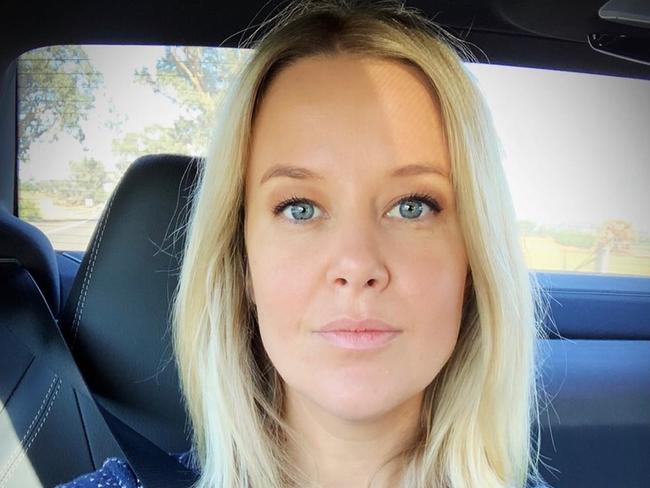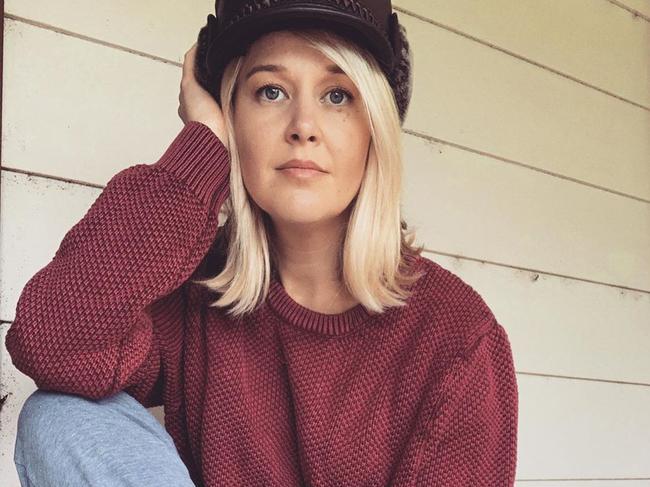Jana Hocking on how ‘love bombing’ can be a warning sign
It might seem charming and kind, but if someone does this one thing then it could lead to the most toxic relationship.
Dating
Don't miss out on the headlines from Dating. Followed categories will be added to My News.
I still remember the day I hopped in the car on my way to my brand new job and winced in pain as I sat down. “Ouch, surely it shouldn’t still be hurting,” I thought to myself as the excitement of going to my new job slowly started to fade away.
A sudden scary thought came into my head. “If it hurts a few hours after impact, does that make it a domestic violence injury? There’s no bruise, I don’t think, so maybe it can just be counted as a small bump in the road. A silly moment of anger, shall we say?”
That was me, in my 20s, sitting in my car on the side of the road trying to justify a recent injury given to me by a man I thought I was in love with.

The problem was, yes, it was domestic violence. You see, the night before the guy I had been dating got home late after he’d promised to take me out for dinner to celebrate my new job. When he finally arrived we had an almighty fight. I screamed, he shouted, I sobbed on the floor and before I knew it, I received a kick to the backside. A hard one.
He took himself off to bed, and I slept on the lounge a little shaken up, but worried that he was going to dump me. Yep, I was more worried that the guy who had used his foot to get me to ‘shut up’ was going to leave me, than the fact that it genuinely hurt to sit down.
All day, every time I sat back in my seat I was reminded of the night before. I was so embarrassed I vowed to tell no one.
However, looking back I realise a lot of people were aware. The hairdresser who pulled me aside one day to ask if my eye was OK. The police who turned up after the neighbours heard shouting. The friends who grew more and more frustrated every time I took him back. I just didn’t want to acknowledge it.
You see, the problem with toxic relationships, is that the red flags display themselves early, but they are just so subtle that sometimes it’s hard to notice. Ahhh, the gift of reflection. It sure does map out the story.
The reason I’ve been pondering on this lately, is because I came across an article by schoolteacher and author, Daisy Turnbull. In it, she called for parents to talk to their teenagers about the dangers of love bombing. With the Government looking to criminalise coercive control, she believes we need to make teenagers who are venturing out into the dating work, aware of some of the ways they can be manipulated into these toxic and dangerous relationships.
All I kept thinking was, “Where was Daisy when I was beginning to date!” Oh, to have known how to spot a red flag early.

According to the Oxford Dictionary, love bombing is defined as the action or practice of lavishing someone with attention or affection, especially in order to influence or manipulate them.
For me, that’s exactly how my relationship started. The first week we met he arrived unannounced to pick me up for an unplanned date. Then every day for the next week he delivered lunch to my work, bought me presents and confessed his feelings so confidently that I completely got swept up in it all.
But then at my birthday, he took exception at one of my male friends dipping me on the dance floor and got into a physical fight with him.
Then when holidays had finished and it was time to go back to university two hours from home, he would turn up announced. I remember one Sunday I was at his house before I drove back to uni for the week and he hid my car keys so I wouldn’t drive back. That wasn’t passion or romance. That was controlling behaviour.
Suddenly I was choosing to drive two hours each day to uni rather then stay in my dorm, because he didn’t get good vibes from my friends.
I was struggling with my assignments because he required constant attention. I was paying for an expensive replacement of my car window because he got mad and put his fist through it.
I invited Daisy on my podcast this week to discuss the dangers of love bombing, and we mused at just how simply coercive relationships begin. A simple text asking where you are, a few mean words about your friends in an attempt to isolate you from them, a constant monitoring of your social media. I knew it all too well.
When I look back at my own dating history, I realised that the signs really were all there from the start, and what it left in its wake was grim. A lost sense of purpose, not an ounce of self-respect, and plenty of therapy and hard work to get my life back on track.
Happily, I can now say that moment of my life is over and I’m stronger for it. Through experience and knowledge, I can see the red flags a mile away. But I worry for the girls just venturing into the world of dating. While it can be a heck load of fun, we need to have our wits about us.
So here’s to more open and honest discussions. Through education, and sharing our own experiences, perhaps we can give these girls the tools to date safer.
Jana Hocking is a podcaster and collector of kind-of-boyfriends | @jana_hocking
Originally published as Jana Hocking on how ‘love bombing’ can be a warning sign





